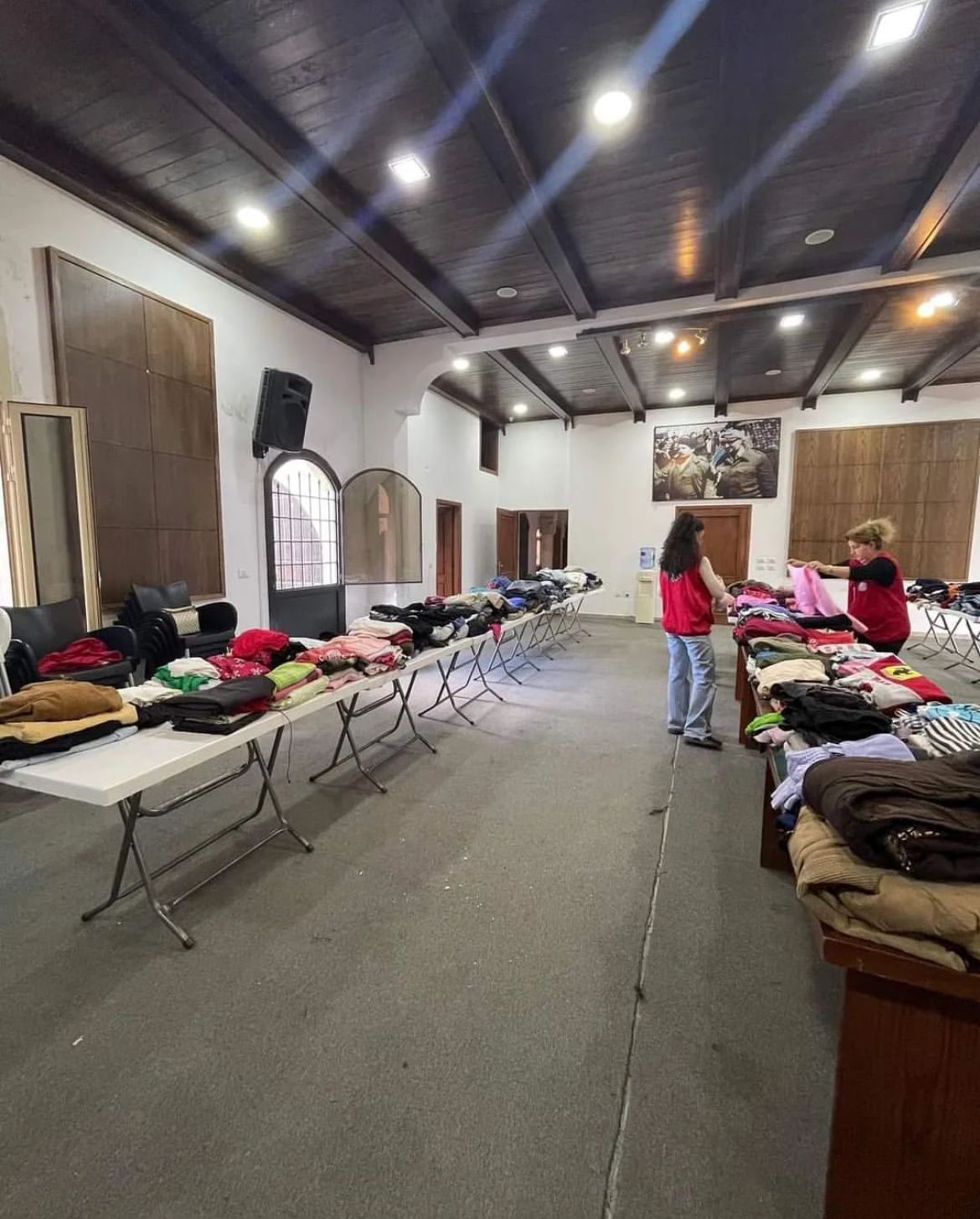
Over a month has passed since the escalation of the war in Lebanon, with Israeli attacks intensifying. As winter looms, displaced families are facing grave challenges. Many are sheltering in schools, but these spaces are lacking essential resources, particularly fuel for heating. Others are left to sleep on the streets, exposed to the cold and rain. With no alternatives for shelter and limited access to aid, displaced individuals are bracing for a harsh winter, relying on minimal humanitarian assistance
Since Israel intensified its war with Hezbollah in September, over 1.2 million people have been forced from their homes. Thousands have sought refuge in schools that Lebanon’s caretaker government, which has operated without a president for two years, has converted into shelters.
With displaced individuals rising daily, Lebanon’s 892 government-established makeshift shelters are nearing full capacity. Across Beirut, in areas like the Corniche, hundreds of men, women, and children are left sleeping in the open.
Lebanon’s winters often bring heavy rain and freezing temperatures, which makes tents inadequate for families living on the streets.
Displaced families are forced to seek shelter in buildings that have been abandoned or left vacant for years, sometimes even decades. If they do find a place, they work to make these spaces livable by cleaning the rooms and furnishing them with whatever materials they can find.
Lebanese authorities have evicted people from some of these buildings, often at landowners’ request, without providing alternative shelter.
The absence of support from the Lebanese government and political groups has forced local relief groups to take the lead in providing aid.
A harsh economic crisis combined with a displacement crisis and the constant threat of Israeli attacks, it will be a winter like no other in Lebanon, local aid organizations on the ground have told NOW.
Samer Azzam, a volunteer in Lana International NGO told NOW: “With the cooperation of townspeople, we have put together donation drives for winter clothes and blankets but we are facing shortages, so many displaced individuals are having to share blankets overnight and in mountainous areas, the temperatures drastically drop around this time, and many are not used to this type of cold.”
Temperatures in rural and mountain areas have been dropping overnights even before winter fully sets in and the schools where displaced individuals are taking shelter have no diesel to run central heating systems, making matters worse for the families worried about the harsh winter and their children falling sick and not being able to receive proper warmth, especially during midnight.
According to Samer, what is needed the most at moment are winter jackets, scarves, woolen hats, thermal wear, winter boots, gloves and baby clothes.
The winter months will undoubtedly bring harsher conditions for the displaced families whilst intensifying their hardships. For those sheltering in schools, the lack of fuel to power heating systems leaves classrooms cold and inhospitable, with children and adults having to endure freezing temperatures.
Many others, unable to find space in overcrowded shelters, are forced to sleep rough on the streets, meaning they will be exposed to the cold and harsh weather without adequate protection.
This struggle is compounded by the dire economic crisis, which already had families choosing between heating their homes and putting food on the table even before the war began. Now, with resources scarcer than ever, these families are trapped in an increasingly desperate fight for survival.
Even those who have managed to rent apartments in colder regions are struggling, as they must bear the financial burden of installing heating systems or paying for fuel to stay warm.
Lebanon’s resources remain stretched thin, and as the winter weather intensifies the hardships faced by the most vulnerable will too, so local organziations and activists are stressing the need for additional international support to ensure that all displaced people can receive the help they desperately need.
Social worker based in the Beqaa region and works with UNHCR, Nada Kadri told NOW: “To address the immediate needs of these families, the UNHCR, in collaboration with partners like Dubai Humanitarian, has mobilized significant relief efforts because we are well aware of the absence of the Lebanese government.”
According to Nada large shipment of 192 metric tons of essential supplies, including warm clothing and blankets, has been dispatched, with a convoy of 27 trucks making its way through Lebanon to deliver aid before the harsh winter sets in.
The economic crisis in Lebanon had made necessities, including heating, nearly unaffordable for many families with the skyrocketing fuel prices that meant a large portion of the population simply could not afford to buy the necessary fuel for heating their homes during the winter. As a result, many households were forced to seek alternatives such as illegal tree logging.
However, although this practice was common among families displaced from the south and the Baalbek region pre-war, it is no longer doable amid the ongoing war as several factors complicate its use now, meaning families will increasingly be forced to depend on aid from humanitarian organizations, though this aid remains insufficient for long-term survival during the winter.
Hadi, who was displaced from Nabatieh to the Chouf region when the airstrikes on the South intensified back in September expressed his concern to NOW about the dropping temperatures and his and his family’s fear of the war dragging till the next few months as they are taking shelter in a school in Baakline.
“The school building is really cold, and as the temperatures continue to drop, we’re struggling to keep warm. We have only a few blankets to share between us, and when the cold seeps into the rooms, many of us spend hours trying to keep our children warm,” said Hadi.
“I do not know anything about my home, but we are really hoping for a ceasefire and for this war to end as we want to go back to our normal life and work hard again to stand on our feet.” He added.








